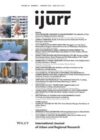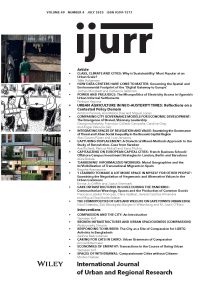While critical security and urban studies have been attentive to the effects of counterterrorism and radicalization policies by looking at the militarization of urban environments and the securitization of social policies, less attention has been paid to how these policies reconfigure urban governance in Western European cities. Taking the case study of the Brussels capital region, this article examines the intertwinement of the management of the terrorist threat and urban governance to make the following contributions. First, we argue that threat management builds from geographies of urban social inequality by targeting spaces of relegation and spaces of value. Secondly, we examine how the management of threat draws upon existing logics of integration as a mode of urban governance. Spaces of relegation are integrated through exercising control and influence over the conduct of its population considered at risk of radicalization. Spaces of value, considered as vulnerable to terrorist attacks, are to be integrated through infrastructural interventions. Finally, we observe that the management of threat results in the securitization of integration by harnessing existing socio-economic inequalities. This creates a paradox: while integration aims to mitigate the effects of urban uneven development, its securitization further confines these spaces by reproducing exclusionary techniques.
Details
Written by:
Alex Govers Pijoan, Lore Janssens
Digital Object Identifier (DOI)
https://doi.org/10.1111/1468-2427.13327
About DOI

